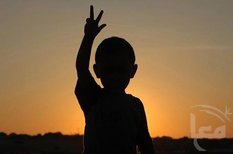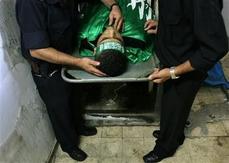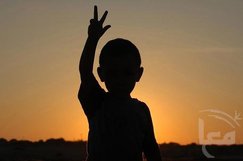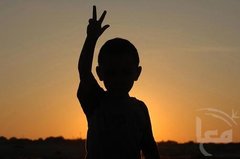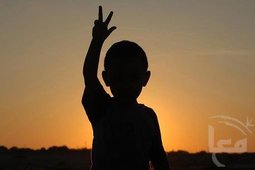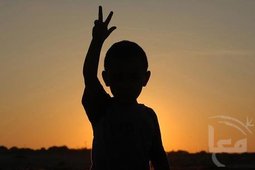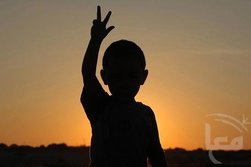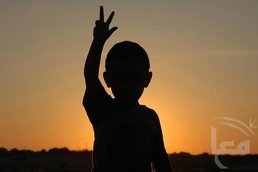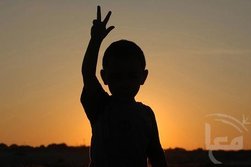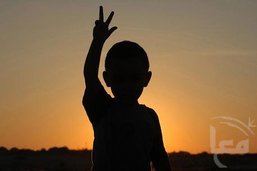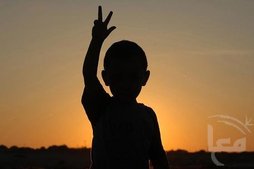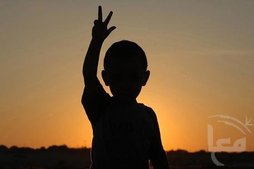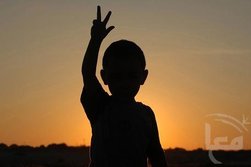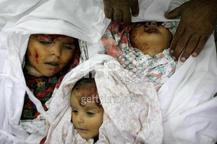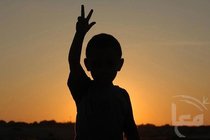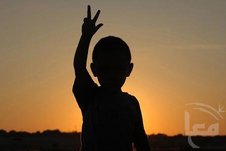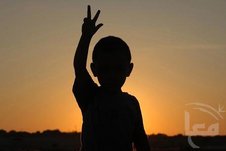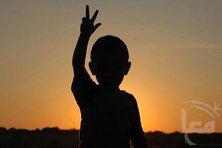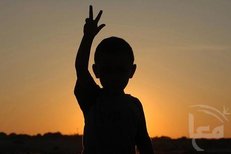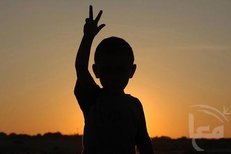OPERATION SUMMER RAINS JUNE 30-AUG 31 2006
OPERATION SUMMER RAINS JUNE 30-AUG 31 2006
that no Israeli investigation teams entered the Gaza Strip to examine the shelled beach. Peretz claimed that “Israel had enough evidence to back up its claims that it was not responsible for the incident", but failed to explain what the evidence was.
Meir Klifi, the Israeli general who led the committee, said the army had been shelling areas just north of the beach but could account for every one of the rockets fired. "There is no chance that a shell hit this area. Absolutely no chance," he said. He dismissed the chance that one of the rockets may have misfired in the direction of the beach, despite the fact that no one from the army investigated any of the spots where the dozens of rockets fired supposedly landed.
Klifi said Palestinian fighters "could have placed something in the area in order to prevent operations by our forces", but the Palestinian leadership vehemently denied the Israeli claim as 'damage control' meant to counter the 'bad publicity' Israel received worldwide after Friday's attack.
The Israeli military has been brought to court a number of times by the families of victims of Israeli attacks for issuing misleading statements to the media following such attacks. In one such case, the family of British peace activist Tom Hurndall, shot in the head and killed by Israeli soldiers in 2002 while trying to rescue small children from the line of fire, sued the Israeli military for a statement they made the day after Tom was shot in which they said he had been carrying a gun. This statement was repeated, without proof, by a number of major media, but was later revoked when it was proven to be patently false (although the revocation was not put out to the media).
About the latest Israeli statement denying responsibility for the Gaza attack Friday, Ghazi Hamad, a spokesman for the Hamas-led government, said that Israel was trying to "escape from shouldering responsibility" for the blast, "The eyewitnesses and the evidence that we have confirm the massacre is the result of Israeli shelling"
The eyewitness accounts of the attack Friday, which stated that a rocket fired from an Israeli naval vessel off-shore hit the crowded beach, were verified by Marc Garlasco, a military analyst for the international organization Human Rights Watch. In a press conference Tuesday, Garlasco said it was "patently not the case" that the blast was caused by a mine, adding, "The injuries of the people in the hospital were all to the torso and head, injuries that could not have been caused by a landmine."
Salach Ghalya, who lost seven close family members, says that the Israeli committee set up to investigate the incident has a problem, because it can't enter Gaza to investigate seriously what happened. "How can they come to any conclusions without listening to anyone who was there?", he asked, adding that there was more than one rocket that hit the beach, and that there was shrapnel from the rockets that could be examined by anyone serious about an investigation.
The Israeli 'investigation' apparently consisted of an aerial photograph which Israeli sources say shows that the hole in the sand does not match the size of an Israeli artillery shell (155mm). But Ghalya and other eyewitnesses say that the 'hole in the sand' was probably shifted or covered by either emergency crews, or the dozens of people running for cover, and was not an accurate measure of the size of the shell (or shells) that hit the beach.
Israeli human rights groups, meanwhile, condemned the ongoing attacks on Palestinian civilians, including both Friday's attack and two 'extra-judicial assassinations by missile' carried out by Israel Tuesday that resulted in 11 dead, 8 of them civilians -- two of whom were infants.
The groups B’Tselem, ACRI, PCATI, HaMoked and PHR-Israel) state that "the killing of a family at the Gaza seashore on Friday (a father, mother and five children), apparently by a shell fired by Israeli soldiers, is a terrible addition to an already horrifying statistic: according to B'Tselem data, since the onset of the second Intifada, 3,431 Palestinians in the Occupied Territories have been killed by Israeli security forces. Of those, 698 were minors under the age of 18 years. At lease 1,645 of those killed were in no way taking part in the fighting at the time they were killed (and an additional 244 people were the targets of targeted killings). These dismal figures result directly from a series of Israeli policies, including illegal expansion of Israel's open-fire regulations, deliberate vagueness and double messages regarding the use of force, violation of the principle of proportionality and the failure to conduct independent investigations into civilian deaths."
The organizations add that "it is indeed Israel's obligation to take all legitimate steps at its disposal to defend the lives and security of its citizens from attacks by Palestinian organizations. These attacks by Palestinian groups, which deliberately target civilians, constitute a war crime for which there can be no justification. However, it is unconscionable that a sovereign state should use illegal means, some of which reach the level of war crimes. The organizations reiterate that one of Israel's central obligations under international humanitarian law is to minimize the impact of military action on the civilian population, and to ensure the life and security of Palestinian civilians, also during armed conflict."
Israeli forces have fired over 6500 shells into the Gaza Strip, the most crowded place on earth, over the last month, killing at least 74 Palestinians, and injuring 292, some of them seriously. Human rights groups estimate that 80% of Palestinian casualties are civilians.
http://www.imemc.org/article/19341
Meir Klifi, the Israeli general who led the committee, said the army had been shelling areas just north of the beach but could account for every one of the rockets fired. "There is no chance that a shell hit this area. Absolutely no chance," he said. He dismissed the chance that one of the rockets may have misfired in the direction of the beach, despite the fact that no one from the army investigated any of the spots where the dozens of rockets fired supposedly landed.
Klifi said Palestinian fighters "could have placed something in the area in order to prevent operations by our forces", but the Palestinian leadership vehemently denied the Israeli claim as 'damage control' meant to counter the 'bad publicity' Israel received worldwide after Friday's attack.
The Israeli military has been brought to court a number of times by the families of victims of Israeli attacks for issuing misleading statements to the media following such attacks. In one such case, the family of British peace activist Tom Hurndall, shot in the head and killed by Israeli soldiers in 2002 while trying to rescue small children from the line of fire, sued the Israeli military for a statement they made the day after Tom was shot in which they said he had been carrying a gun. This statement was repeated, without proof, by a number of major media, but was later revoked when it was proven to be patently false (although the revocation was not put out to the media).
About the latest Israeli statement denying responsibility for the Gaza attack Friday, Ghazi Hamad, a spokesman for the Hamas-led government, said that Israel was trying to "escape from shouldering responsibility" for the blast, "The eyewitnesses and the evidence that we have confirm the massacre is the result of Israeli shelling"
The eyewitness accounts of the attack Friday, which stated that a rocket fired from an Israeli naval vessel off-shore hit the crowded beach, were verified by Marc Garlasco, a military analyst for the international organization Human Rights Watch. In a press conference Tuesday, Garlasco said it was "patently not the case" that the blast was caused by a mine, adding, "The injuries of the people in the hospital were all to the torso and head, injuries that could not have been caused by a landmine."
Salach Ghalya, who lost seven close family members, says that the Israeli committee set up to investigate the incident has a problem, because it can't enter Gaza to investigate seriously what happened. "How can they come to any conclusions without listening to anyone who was there?", he asked, adding that there was more than one rocket that hit the beach, and that there was shrapnel from the rockets that could be examined by anyone serious about an investigation.
The Israeli 'investigation' apparently consisted of an aerial photograph which Israeli sources say shows that the hole in the sand does not match the size of an Israeli artillery shell (155mm). But Ghalya and other eyewitnesses say that the 'hole in the sand' was probably shifted or covered by either emergency crews, or the dozens of people running for cover, and was not an accurate measure of the size of the shell (or shells) that hit the beach.
Israeli human rights groups, meanwhile, condemned the ongoing attacks on Palestinian civilians, including both Friday's attack and two 'extra-judicial assassinations by missile' carried out by Israel Tuesday that resulted in 11 dead, 8 of them civilians -- two of whom were infants.
The groups B’Tselem, ACRI, PCATI, HaMoked and PHR-Israel) state that "the killing of a family at the Gaza seashore on Friday (a father, mother and five children), apparently by a shell fired by Israeli soldiers, is a terrible addition to an already horrifying statistic: according to B'Tselem data, since the onset of the second Intifada, 3,431 Palestinians in the Occupied Territories have been killed by Israeli security forces. Of those, 698 were minors under the age of 18 years. At lease 1,645 of those killed were in no way taking part in the fighting at the time they were killed (and an additional 244 people were the targets of targeted killings). These dismal figures result directly from a series of Israeli policies, including illegal expansion of Israel's open-fire regulations, deliberate vagueness and double messages regarding the use of force, violation of the principle of proportionality and the failure to conduct independent investigations into civilian deaths."
The organizations add that "it is indeed Israel's obligation to take all legitimate steps at its disposal to defend the lives and security of its citizens from attacks by Palestinian organizations. These attacks by Palestinian groups, which deliberately target civilians, constitute a war crime for which there can be no justification. However, it is unconscionable that a sovereign state should use illegal means, some of which reach the level of war crimes. The organizations reiterate that one of Israel's central obligations under international humanitarian law is to minimize the impact of military action on the civilian population, and to ensure the life and security of Palestinian civilians, also during armed conflict."
Israeli forces have fired over 6500 shells into the Gaza Strip, the most crowded place on earth, over the last month, killing at least 74 Palestinians, and injuring 292, some of them seriously. Human rights groups estimate that 80% of Palestinian casualties are civilians.
http://www.imemc.org/article/19341
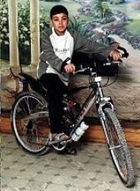
Mahmoud Al-Batash 15
Killed 6 mar 2006
Five children killed by Israeli violence in a single day on Monday
An Israeli air strike killed Raad Al-Batash, 8, Mahmoud Al-Batash, 15, and Ahmad a-Sweisi, 14, on Monday. Sumiyya Al-Batch, the mother of Raad and Mahmoud, was also wounded. And in a separate incident, two brothers, Allam and Nidal Abu Saud, 14 and 15, were blown to pieces when an undetonated explosive left by the Israeli military in their neighborhood suddenly exploded near them.
Eight other passers-by were wounded in the air strike, most of them children, and Sukar's aunt, who lives nearby, died of a heart attack when she was told the news of the boys' deaths.
According to the Israeli military, the missile fired by the Israeli Airforce was targeting a car driven by two Palestinian resistance fighters, who were also killed by the attack. Military sources said that by the time the crowd was identified, it was already too late to divert the two missiles from their courses.
But a report by Israeli human rights group B'tselem called the attack a war crime, for the fact that it violated the principle of proportionality, a central tenet of international law. "Given the time and place chosen for the attack, the planners should have known that it was liable to injure many innocent civilians. Despite the extensive harm to civilians resulting from yesterday's attack, Israel has once again failed to provide any evidence regarding the necessity of the action or the lack of alternates that would entail lesser harm to civilians. These facts create a grave suspicion that yesterday's attack was disproportionate and thus constitutes a war crime", said a report by the group released Tuesday morning.
Over 800 Palestinian and 123 Israeli children under the age of 18 have been killed in Israel and the occupied territories since the current open conflict erupted in September of 2000, according to human rights groups.
Most of the Palestinian children killed by Israeli forces died of multiple gunshot wounds. But at least 40 were killed by explosives left behind by Israeli forces that did not explode on impact, like the Abu Saud brothers killed on Monday.
Children in occupied Palestine are prone to playing with bullet casings, artillery shells and other military paraphenalia left behind by Israeli forces when the troops withdraw from the neighborhoods. Sometimes the devices turn out to be live, and explode, killing or wounding the children.
Killed 6 mar 2006
Five children killed by Israeli violence in a single day on Monday
An Israeli air strike killed Raad Al-Batash, 8, Mahmoud Al-Batash, 15, and Ahmad a-Sweisi, 14, on Monday. Sumiyya Al-Batch, the mother of Raad and Mahmoud, was also wounded. And in a separate incident, two brothers, Allam and Nidal Abu Saud, 14 and 15, were blown to pieces when an undetonated explosive left by the Israeli military in their neighborhood suddenly exploded near them.
Eight other passers-by were wounded in the air strike, most of them children, and Sukar's aunt, who lives nearby, died of a heart attack when she was told the news of the boys' deaths.
According to the Israeli military, the missile fired by the Israeli Airforce was targeting a car driven by two Palestinian resistance fighters, who were also killed by the attack. Military sources said that by the time the crowd was identified, it was already too late to divert the two missiles from their courses.
But a report by Israeli human rights group B'tselem called the attack a war crime, for the fact that it violated the principle of proportionality, a central tenet of international law. "Given the time and place chosen for the attack, the planners should have known that it was liable to injure many innocent civilians. Despite the extensive harm to civilians resulting from yesterday's attack, Israel has once again failed to provide any evidence regarding the necessity of the action or the lack of alternates that would entail lesser harm to civilians. These facts create a grave suspicion that yesterday's attack was disproportionate and thus constitutes a war crime", said a report by the group released Tuesday morning.
Over 800 Palestinian and 123 Israeli children under the age of 18 have been killed in Israel and the occupied territories since the current open conflict erupted in September of 2000, according to human rights groups.
Most of the Palestinian children killed by Israeli forces died of multiple gunshot wounds. But at least 40 were killed by explosives left behind by Israeli forces that did not explode on impact, like the Abu Saud brothers killed on Monday.
Children in occupied Palestine are prone to playing with bullet casings, artillery shells and other military paraphenalia left behind by Israeli forces when the troops withdraw from the neighborhoods. Sometimes the devices turn out to be live, and explode, killing or wounding the children.
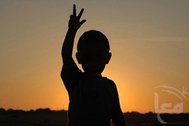
Nidal Abu Saud 15
A report by the Gaza City Palestinian Police Department in July 2005 showed that in 2003, 36 explosion incidents were recorded, claiming the lives of five children, and wounding 135. In 2004, police records documented 105 explosion incidents, in which two children were killed and 88 wounded. In 2005 until late June, the police statistics showed 35 explosion incidents, causing two deaths and 21 injuries, mostly children. Abu Azoum appealed to residents to make their children fully aware of the dangers of the remnants of explosives, not to pick them up or come near them, as they may contains unexploded parts.
The Palestinian police handles incidents of the explosion of the suspected devices and unexploded bombs. Saleh Abu Azoum, director of explosives engineering of the police, said, "We have a well-trained team equipped with the most modern equipment; they are capable of handling any kind of suspected object even if it is extremely dangerous."
However, Azoum noted that much of the necessary equipment was denied entry into Gaza by Israeli forces, saying, "The European Union (EU) provided the Palestinian police with four advanced automated explosive-detection devices but the Israeli occupation forces hindered the arrival of the rest of the EU-donated equipment." The Police Report also accused Israeli occupation forces of deliberately leaving behind explosives and landmines when retreating from Palestinian neighborhoods, causing deaths among innocent residents, in particular children who played with the objects.
Israeli Commander Eliezer Shakedi said on Tuesday morning that the Israeli Airforce makes "super-human efforts in order to reduce the number of innocent casualties in aerial strikes", and said that the number of civilian casualties has decreased dramatically over the last two years. Human rights groups, however, dispute that claim, saying that over 2/3 of the 3,829 Palestinians killed in the last five years have been civilians.
In February, the Resalah Center for Human Rights in Gaza issued a report condemning the killing of children by Israeli Occupation Forces. According to the report, Israeli Occupation Forces killed 797 children under the age of 18 between 28 September 2000 and 30 December 2005, approximately the time period of the Al Aqsa Intifada. The center pointed out that many children who weren't killed have been left with physical and psychological damage.
The center confirmed that those children were killed without any reason and that they hadn't committed any illegal or violent activities against the Israelis. The Center pointed out that many children were killed in aerial strikes. Other children were killed by random shooting and others as bystanders during targeted assassinations.
The Center criticized myths perpetuated in the Israeli and international media that Palestinian mothers send their children to die in order to receive more international sympathy, noting the high number of children killed at home or at school, or between home and school.
The report also stated that Israeli soldiers treat peaceful protests and marches as if they are battlefields, and shoot randomly into crowds, suggesting, "They should follow police methods of crowd dispersal to reduce danger to children in the area."
Resalah Center lawyer Ramzy Abu Jalhoum called on the international community and all human rights organizations to intervene immediately to protect the Palestinian children and to stop the Israeli killing of children.
After Monday's attack, Palestinian President Mahmoud Abbas said that it represents a dangerous escalation against the Palestinian people, adding that such escalations do not serve to push the peace process forward.
Hamas leaders called the air strike a "massacre". Sami Abu Zuhri, a Hamas spokesman, said that "if the international community remains quiet the situation will explode."
http://www.imemc.org/article/17187
A report by the Gaza City Palestinian Police Department in July 2005 showed that in 2003, 36 explosion incidents were recorded, claiming the lives of five children, and wounding 135. In 2004, police records documented 105 explosion incidents, in which two children were killed and 88 wounded. In 2005 until late June, the police statistics showed 35 explosion incidents, causing two deaths and 21 injuries, mostly children. Abu Azoum appealed to residents to make their children fully aware of the dangers of the remnants of explosives, not to pick them up or come near them, as they may contains unexploded parts.
The Palestinian police handles incidents of the explosion of the suspected devices and unexploded bombs. Saleh Abu Azoum, director of explosives engineering of the police, said, "We have a well-trained team equipped with the most modern equipment; they are capable of handling any kind of suspected object even if it is extremely dangerous."
However, Azoum noted that much of the necessary equipment was denied entry into Gaza by Israeli forces, saying, "The European Union (EU) provided the Palestinian police with four advanced automated explosive-detection devices but the Israeli occupation forces hindered the arrival of the rest of the EU-donated equipment." The Police Report also accused Israeli occupation forces of deliberately leaving behind explosives and landmines when retreating from Palestinian neighborhoods, causing deaths among innocent residents, in particular children who played with the objects.
Israeli Commander Eliezer Shakedi said on Tuesday morning that the Israeli Airforce makes "super-human efforts in order to reduce the number of innocent casualties in aerial strikes", and said that the number of civilian casualties has decreased dramatically over the last two years. Human rights groups, however, dispute that claim, saying that over 2/3 of the 3,829 Palestinians killed in the last five years have been civilians.
In February, the Resalah Center for Human Rights in Gaza issued a report condemning the killing of children by Israeli Occupation Forces. According to the report, Israeli Occupation Forces killed 797 children under the age of 18 between 28 September 2000 and 30 December 2005, approximately the time period of the Al Aqsa Intifada. The center pointed out that many children who weren't killed have been left with physical and psychological damage.
The center confirmed that those children were killed without any reason and that they hadn't committed any illegal or violent activities against the Israelis. The Center pointed out that many children were killed in aerial strikes. Other children were killed by random shooting and others as bystanders during targeted assassinations.
The Center criticized myths perpetuated in the Israeli and international media that Palestinian mothers send their children to die in order to receive more international sympathy, noting the high number of children killed at home or at school, or between home and school.
The report also stated that Israeli soldiers treat peaceful protests and marches as if they are battlefields, and shoot randomly into crowds, suggesting, "They should follow police methods of crowd dispersal to reduce danger to children in the area."
Resalah Center lawyer Ramzy Abu Jalhoum called on the international community and all human rights organizations to intervene immediately to protect the Palestinian children and to stop the Israeli killing of children.
After Monday's attack, Palestinian President Mahmoud Abbas said that it represents a dangerous escalation against the Palestinian people, adding that such escalations do not serve to push the peace process forward.
Hamas leaders called the air strike a "massacre". Sami Abu Zuhri, a Hamas spokesman, said that "if the international community remains quiet the situation will explode."
http://www.imemc.org/article/17187
